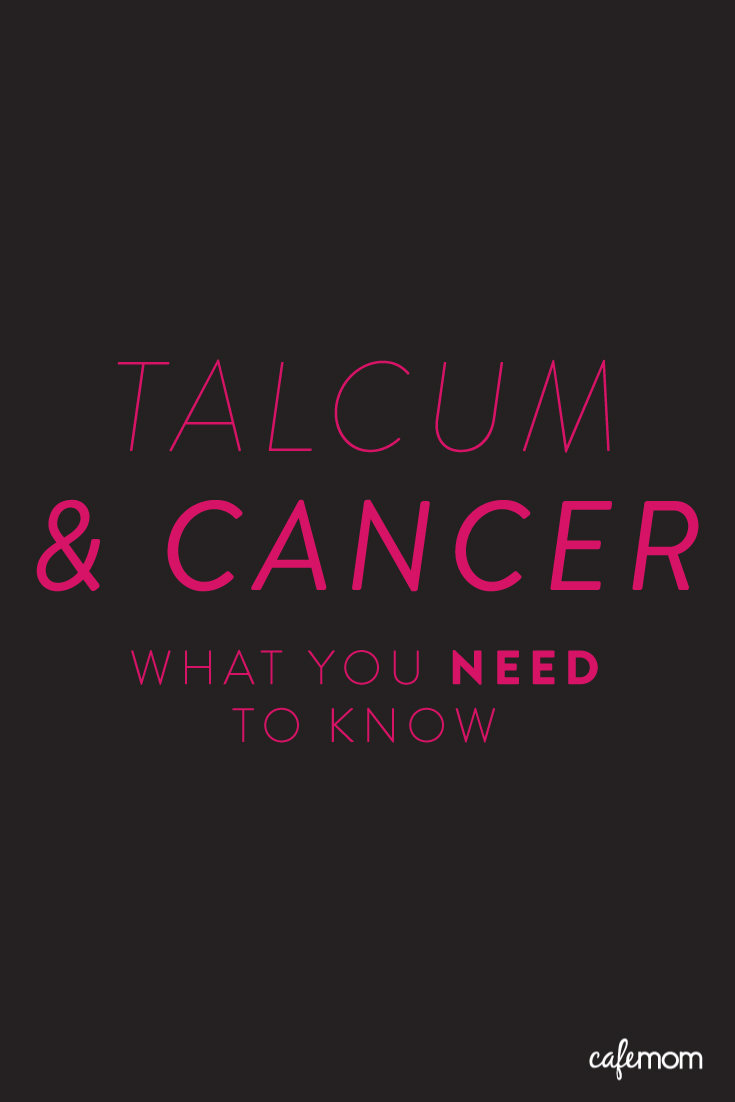You probably read about how Johnson & Johnson was recently ordered by a court to pay $72 million to the family of a woman who passed away from ovarian cancer. The disturbing reason? Their talcum-based products could have very well contributed to her death.
Sixty-two-year-old Jacqueline Fox used talcum-based baby powder and Shower to Shower — both J&J products — on her privates for 35 years. Three years ago, she was diagnosed with ovarian cancer. Both she and her family believed there was a connection, and recently, a Missouri state jury agreed.
While Johnson & Johnson insists their products are safe, we're left feeling a bit skeptical. What is up with talc? Do we need to stop using any products that contain it? And should we freak out about other bathroom essentials being, you know, CARCINOGENS? Because, you know, we can.

We could have spent an hour (or five) asking questions of the always helpful Dr. Google. But we decided to do the less anxiety-provoking thing and query REAL doctors instead.
Here's what you need to know about the talc-cancer link.
What is talc anyway? Talc is a compound made from silicon, magnesium, and oxygen, for all you science geeks. In its natural form, it contains asbestos — yes, that's right. But the stuff you buy off the shelf has been asbestos-free since the '70s.
What products contain talc? "Talcum powder has been widely used in cosmetics and hygiene products because it absorbs moisture and reduces friction," says Homayoon Sanati, MD, medical oncologist and medical director of the MemorialCare Breast Center at Orange Coast Memorial Medical Center in Fountain Valley, California.
Talc is in thousands of products, from mascara and lip gloss to body firming lotion, nail polish, corn/callus treatment, and — of course — baby powder.
So why is using it on my hooch such a big deal? "Talc can potentially enter the vagina and uterus and travel through the Fallopian tube where it can cause inflammation and potentially cause cancer," Dr. Sanati explains.
It is a carcinogen then, right? Well, probably. "The connection between the use of talcum powder in the genital area and the increased risk of ovarian cancer is not a new health concern," says Sherry Ross, MD, an OB/GYN and women's health expert at Providence Saint John's Health Center in Santa Monica, California. "It's just a controversial one."
While 16 studies have shown an association, others haven't. And because of that conflict, says Dr. Ross, it's been determined that talcum powder is only a "possible" carcinogen.
More from The Stir: 6 Everyday Aches & Pains That Could Really Be Ovarian Cancer
Are some women more at risk than others? Yep. "The risk of ovarian cancer is increased in women with BCRA mutation," Dr. Sanati notes. (Angelina Jolie falls into this category.)
Are there any other products I use down there that could be harmful, too? Glad you asked, because … yes. Even if you don't use talcum powder, chances are you do use tampons and pads.
"Both contain dioxin [a chemical compound] and other carcinogens, which have long been suspected to increase the risk of ovarian cancer," Dr. Ross notes.
So what can I do to stay safe? Well, for starters, look for talc-free products. (If it's powder you're after, several brands such as Burt's Bees, Gold Bond, and The Honest Company offer safe alternatives.)
Next, think about switching to tampons and pads that are free of bleach, pesticides, and toxic chemicals. You can even try washable cloth pads or silicone cups like the DivaCup.
Am I being paranoid? Hell, no. You only get one set of ovaries. Better protect 'em.
Image via iStock.com/gvictoria




